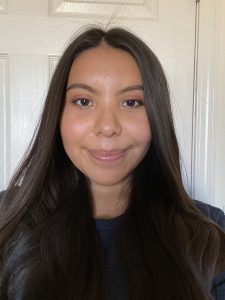
Caitlyn Cruz
MS – Rangeland Ecosystem Science
2025
I am from Ohkay Owingeh, New Mexico, and grew up on the reservation. I earned a Bachelor of Science degree in Environmental Science and Chemistry from New Mexico State University. My academic journey was fueled by a desire to bridge the gap between traditional indigenous knowledge and modern STEM fields.
Living in Northern New Mexico, I have experienced impacts of wildfires such as the Los Conchas Fire and Hermit’s Peak Fire, which sparked a personal mission to explore fire management and operations from both a scientific and cultural perspective.
At Colorado State University, I have taken on the role of Graduate Research Assistant.
My work centers on assessing the post-wildland fire management impact on Southwest tribes in the United States. My research enforces my commitment to bringing indigenous voices to the forefront of environmental policy and decision-making processes. I have a strong passion and dedication to indigenous rights, environmental justice, and want to contribute to the integration of traditional knowledge into STEM fields.
I grew in rural Vermont, amidst working forests and farmland, with a family history of forest conservation and cross-aisle collaboration. I earned my undergraduate degree from the University of Vermont in 2009, a BA in Studio Arts with a minor in Anthropology. I returned to the arts in 2017 with an exploration into traditional and sustainable textile around the world. This work brought me to a fallow flax field in rural Lithuania, where a local seamstress explained that Lithuania’s flax fields once provided most of Europe’s linen.

Lily Calfee
MS – Forest Sciences
2024
However, while home gardens still grew abundantly, the Soviet occupation and USSR land-use policies farmed the rich agricultural land to dust. As the flax harvest dwindled, factories closed, and communities sank into poverty. This intersection of policy, ecology, and local culture drove me to learn more about how land management policies in the US affect the health of our forests and the rural communities that depend on those landscapes.
Before pursuing my MS at Colorado State University, I worked as a freelance writer and coach, developing 8+ years of experience in facilitation, marketing, and content creation. I put these skills to use within the Public Lands Policy Group, where I research multi-watershed-scale collaboratives and the hurdles they face as they scale up to increase the pace and scale of forest restoration under the context of a changing climate. I’m particularly interested in how boundary-spanning organizations can help us meet the “triple bottom line” of social, environmental, and ecological restoration. Ultimately, I hope to facilitate effective land management partnerships between policymakers, NGOs, stakeholders, and rightsholders.
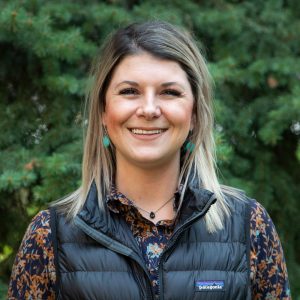
Tamera Breidenbach
MS – Forest Sciences
2024
I grew up in rural western North Carolina, where my deep connection to the surrounding forests and ecosystems profoundly shaped my early childhood experiences. Initially, I pursued a career in service and hospitality, spending a decade in training and management roles. Ultimately, my experience growing up in Appalachia led me back to education and helped me develop a focus on natural resources.
As a first-generation “blue-collar” scholar, I relocated to Colorado, where I earned a Bachelor of Science in Ecosystem Science and Sustainability with a minor in Sustainable Water from Colorado State University (CSU), graduating Cum Laude in December 2019.
My undergraduate research emphasized quantitative methods and fieldwork, providing me with invaluable hands-on experience in ecology and environmental science. Fieldwork in Yellowstone and Grand Teton National Parks and Parque Nacional Huascarán in Peru, combined with my experience growing up in Appalachia, deepened my passion for understanding rural communities’ resilience to environmental and economic disturbances. Following this interest, I served as a Science Policy Fellow in the Colorado Science and Engineering Policy Fellowship, where I completed an independent research project and policy proposal aimed at enhancing Colorado’s wetland resilience, culminating in a presentation to state leaders and policy decisionmakers. In December 2019, I collaborated with an international team on a larger research project, where I was able to showcase my wetland research at the United Nations Framework Convention on Climate Change COP 25 in Madrid, Spain.
After supporting an office at the Colorado State Capitol during the COVID-19 pandemic, I returned to CSU in Fall 2020 to join the Public Lands Policy Group (PLPG) while pursuing a Master of Forest Sciences and focusing on climate adaptation and resilience. The graduate project I developed examined how case study states in the Western United States are developing and implementing climate adaptation strategies for forested landscapes. Notably, this project involved conducting and analyzing interviews with over 40 participants, from elected officials to on-the-ground practitioners. This experience enriched my qualitative research skills and strengthened my ability to engage with policy stakeholders. Additionally, as a part of my work with the PLPG, I served as the inaugural Program Manager for the CSU Climate Adaptation Partnership (CSU CAP) from 2020 to 2022.
My current professional interests include environmental policy and compliance, scientific research, adaptation and resilience, and the ongoing vibrancy of communities and ecosystems. I aim to leverage my background in quantitative and qualitative research, along with my professional experiences, to inform policy development and analysis that contributes to resilient practices addressing the challenges to social and ecological systems.
In 2022, I joined the Public Lands Policy Group as a master’s level graduate student. After two incredible years, I am continuing my tenure with the PLPG as a research associate, where I can continue investigating the policies that govern post-wildfire response and recovery, and the use of wildfire risk-based decision support tools and analytics.
I was born and raised in Southern Arizona and went to Northern Arizona University, where I got my B.S. in forestry and a wildfire ecology and management certificate. Throughout my undergraduate studies, I had the opportunity to participate in several research projects. The most influential project investigated the feasibility of wood-based infrastructure in the earthquake-prone Himalayas.

W. Cole Buettner
MS – Forest Sciences
2024
This project brought my interests in environmental policies, governance, climate adaptation and resilience, and collective action together into fulfilling work. My interest in forest and fire policy led me to pursue an M.S. at CSU, where I have been able to refine my qualitative research skills and engage with practitioners and policymakers in a meaningful way.
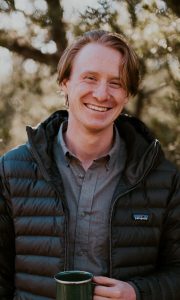
Tyler Aldworth
MS – Forest Sciences
2022
Ty’s graduate research focused on cross-boundary forest management projects and institutional challenges to increasing the pace and scale of forest management across the United States.
After graduating in 2022, Ty joined the Colorado Forest Restoration Institute in 2022 as a Wildland Fire Decision Support Program Specialist. His work focuses on pre-fire planning efforts and wildfire risk management system evaluation.
Read the practitioner paper based on Tyler’s thesis here:
Aldworth, T., Schultz, C., Huber-Stearns, H., Abrams, J., and Kooistra, C. 2022. Field-Level Implementation of the US Forest Service’s Shared Stewardship Strategy: Six Case Studies of Large-Scale Cross-Boundary Forest Management. CSU Public Lands Policy Group Practitioner Paper 16. Fall 2022.
I joined the Forest Science’s masters program at CSU in Fall 2019 and graduated Summer 2021. My background is in human-carnivore conflict and human dimensions research. While at CSU, I will be conducting research on the policy surrounding the proposed reintroduction of the wolf in Colorado. See my recent essay on this history of wolf reintroduction. Here is my working paper from my MS thesis on Policy Lessons for Colorado Wolf Reintroduction.
During my undergrad at Pace University, I started a research study on human perceptions of urban coyotes in New York City (publication here). After graduating in 2017, I was given the opportunity to work for Pace as a research assistant.
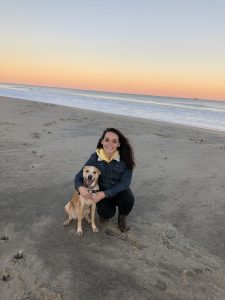
Brielle Manzolillo
MS – Forest Sciences
2021
I was able to continue my study on coyotes, as well as assist on numerous urban social ecological studies. I also got the opportunity to work with the NYC Parks and Recreation Department as a wildlife field tech monitoring the endangered piping plover. After CSU, I became a government relations intern with The Wildlife Society.
Learn more about Brielle’s M.S. work:
Manzolillo, B., and C. Schultz. 2020. Policy Lessons for Colorado Wolf Reintroduction. CSU Public Lands Policy Group Practitioner Paper 11. Summer 2021. PLPG Practitioner Paper #11
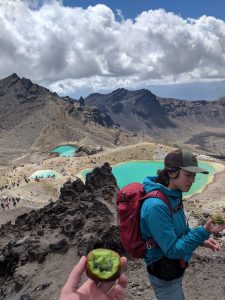
Natasha Collins
MS – Forest Sciences
2020
I grew up in Fort Collins, CO and later moved to Boulder where I graduated from CU with a dual degree in Environmental Studies & Business-Spanish with a minor in Portuguese. For my undergraduate honors thesis I conducted qualitative research on the topic of socio-cultural conceptions of “Wilderness” in southern Bahia, Brazil and Northern Colorado.
After finishing my studies, I spent two years in southern Patagonia, Chile working in the adventure tourism industry as a manager and guide. I returned to Fort Collins last year to begin my Master’s program at CSU. My research focuses on private investments in national forests related to climate change adaptation and mitigation.
Learn more about Natasha’s M.S. work in her published article and her practitioner paper:
Collins, N.H. and Schultz, C.A. 2021. Why companies fund climate change projects on national forests: Insights into the motivations of the Forest Service’s corporate partners. Climatic Change 169(32). DOI: 10.1007/s10584-021-03281-z
Collins, N., and C. Schultz. 2020. Motivations and Mechanisms Underlying U.S. Forest Service Corporate Partnerships. CSU Public Lands Policy Group Practitioner Paper 8. Summer 2020. PLPG Practitioner Paper #8
I began my MS in January 2019 after graduating from Southern Illinois University with a bachelor’s in Forestry. My research will be looking at public outreach surrounding fire management, as well as Prescribed Burn Associations in the western United States.
Before coming to CSU, I worked for the Indiana Department of Natural Resources and the Missouri Department of Conservation. Most recently, I had an internship doing inspections for a tax break program on private lands. I talked with landowners about active forest management and wrote stewardship plans to help them meet their goals.
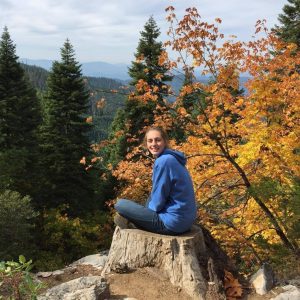
Katie McGrath Novak
MS – Forest Sciences
2020
Read about Katie’s M.S. work here:
McGrath Novak, K., McCaffrey, S., and Schultz, C.A. 2022. Comparing land manager and community perceptions of a Colorado prescribed fire outreach program. Journal of Forestry (online). DOI: 10.1093/jofore/fvac026. Available here.
McGrath Novak, K., Schultz, C.A., and McCaffrey, S. 2020. Design, implementation, and evaluations of prescribed fire outreach on the Colorado Front Range. CSU Public Lands Policy Group Practitioner Paper 7. Fall 2020. PLPG Practitioner Paper #9
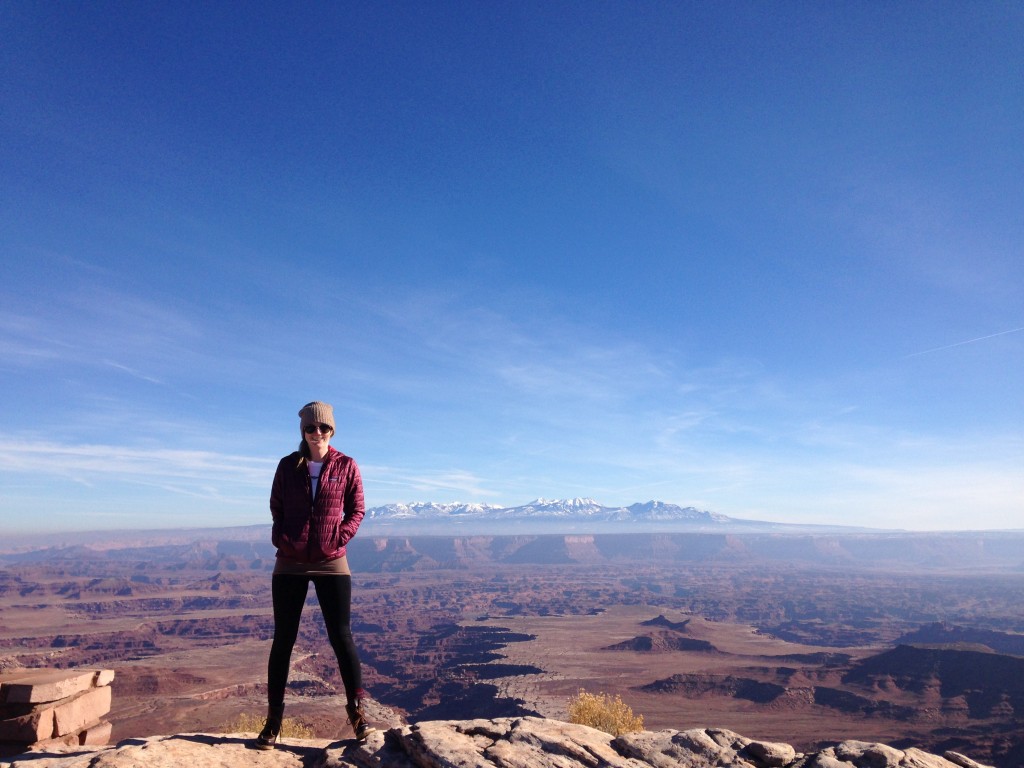
Kathleen McIntyre
PhD – Forest Sciences
2019
For my PhD, I studied US forest policy with a focus on collaborative and environmental governance. I analyzed how collaboratives influence forest policy and gain power in a system of policy constraints during the planning, implementation, and monitoring phases of the Collaborative Forest Landscape Restoration Program. See here for my paper in Land Use Policy entitled Facilitating Collaboration in Forest Management: Assessing the Benefits of Collaborative Policy Innovations.
I earned a Master’s in Environmental Policy and Planning and a Bachelor’s in Environmental Science, both from the University of Michigan. I focused on watershed management and collaborative governance during my degree and prior to that spent several years consulting for oil and gas permitting projects in the Marcellus Shale of Pennsylvania. After CSU, I joined the Tahoe Regional Planning Agency.
I began my PhD studies at CSU in the fall of 2015 and conducted research on how the U.S. Forest Service incorporates considerations of climate change in forest plans and natural resource management decisions. This research reflected my interest in the relationship between the natural environment, human welfare, and policy in a changing world. I was excited to conduct research that may benefit practitioners who are tackling the challenge of decision making in the face of the significant ecological and socio-economic impacts of climate change, coupled with the uncertainty inherent in predicting climate change impacts. I was also drawn to the theoretical aspects of this research, including the disciplines of social-ecological resilience, adaptive planning, and post-normal science. While at CSU, I was a teaching assistant for
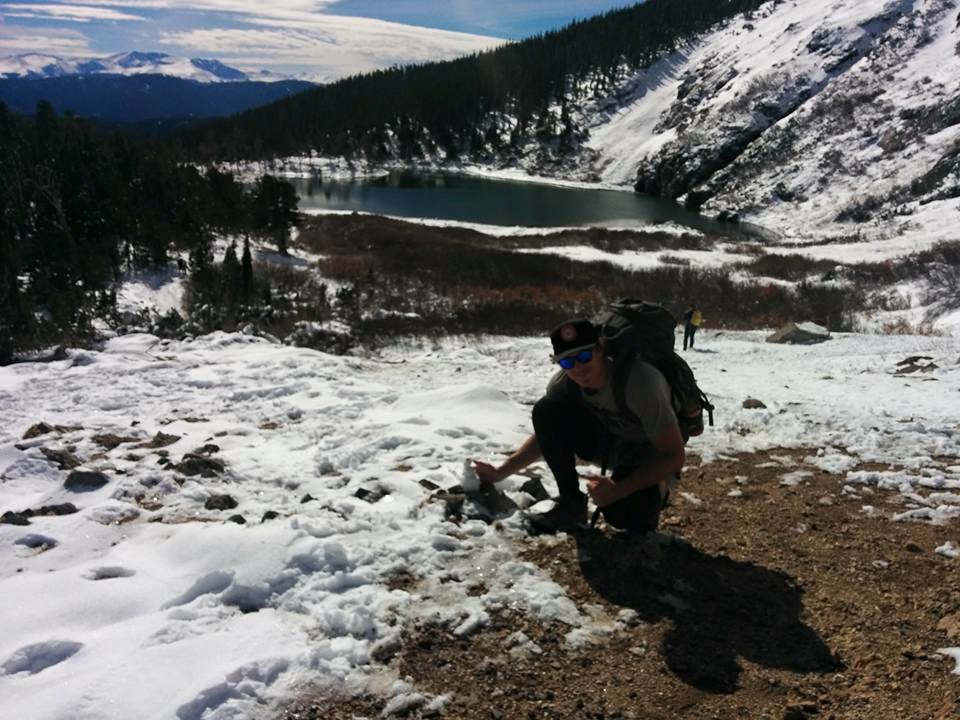
Natural Resources History and Policy (NR320) taught by Professor Schultz. After graduating I was selected as a US Presidential Management Fellow and took a position with the watershed partnerships group at the Rocky Mountain Regional Office of the US Forest Service. Prior to my arrival at CSU, I worked for three years for Industrial Economics, an environmental and economic consulting firm in Cambridge, Massachusetts. My work there focused on regulatory impacts analyses and natural resource damage assessments. I received my B.A. in sustainable development and environmental science from Columbia University in 2012.
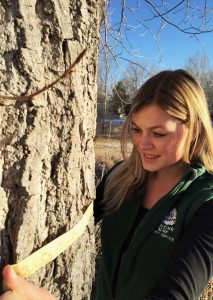
Laren Cyphers
MS – Forest Sciences
2018
I recently completed my Masters in Forest Sciences, and my interests are in natural resource planning and policy. I was also advised by Dr. Kurt Mackes at the Colorado State Forest Service. My thesis work included a study of the true costs of three Colorado wildfires. With Dr. Schultz, as part of a larger team, I contributed to a federally funded research project on Forest Service restoration initiatives. My component was to complete over 62 interviews investigating the effects of the Joint Chiefs Landscape Restoration Partnership. Based on this work, I presented at the Washington, D.C. office of the US Forest Service and the Society of American Foresters National Convention. I also wrote a peer-reviewed journal article on policy design to support cross-boundary restoration.
I now work as an environmental planner for a private consulting company. I received my undergraduate degree in environmental journalism from Colorado State University while serving as the green beat reporter for the Rocky Mountain Collegian, covering natural resource issues and emerging energy policy.
Read Laren’s publication:
Cyphers, L., Schultz, C.A. 2018. Policy Design to Support Cross-Boundary Land Management: The Example of the Joint Chiefs Landscape Restoration Partnership. Land Use Policy (online), available at: https://doi.org/10.1016/j.landusepol.2018.09.021
I completed an MS in Forest Sciences in preparation for law school. I became a law student at Lewis and Clark in Fall of 2018. My research looked at how the Forest Service is undertaking large-scale, adaptive planning within the legal constraints of the National Environmental Policy Act and other major, applicable laws.
Before arriving at CSU, I worked with the Environmental Protection Information Center in northern California, ensuring federal agency compliance of NEPA and the ESA regarding timber and development projects in the Pacific Northwest. I received my BS in Environmental Science with a focus on Ecology at the University of Arizona, where I fostered a great appreciation for the importance of maintaining biodiversity and minimizing disturbance in the sky islands of southern Arizona.
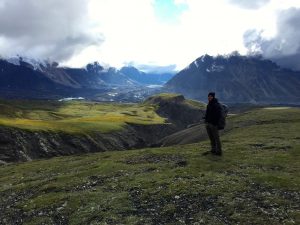
James Garlant
MS – Forest Sciences
2018
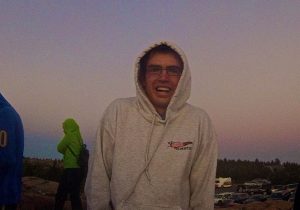
Tait Rutherford
MS – Forest Sciences
2017
I began my master’s studies in forest policy at CSU in the fall of 2016. As part of a federally funded, interdisciplinary team, I looked how wildland fire managers in Alaska are adapting policy and operations in the face of climate change. Based on my work, I presented at two events in Alaska and several academic conferences. I also wrote a peer-reviewed publication based on my research.
While at CSU, I was hired by the US Forest Service as a planner; I now work with the agency as a permanent employee. Prior to coming to CSU, I graduated from Columbia University in the spring of 2016 with a B.A. in political science with a minor in Hispanic
studies. In my undergraduate studies, I focused on U.S. and international environmental politics. I am originally from Fort Collins, and I have long enjoyed camping, skiing and running in the mountains of Colorado.
Check out Tait’s M.S. work:
Rutherford, T.K, Schultz, C.A. 2019. Adapting wildland fire governance to climate change in Alaska. Ecology and Society 24(1): 27-40. Available at: https://www.ecologyandsociety.org/vol24/iss1/art27/
Rutherford, T. and C.A. Schultz. 2017. Challenges and Opportunities in Alaska Fire Management: Adapting to Climate Change: A Practitioner’s Report on Interview Findings. CSU Public Lands Policy Group, Fort Collins, CO. PLPG Practitioner Paper #1
I graduated in Spring of 2018 and am now with the Center for Large Landscape Conservation in Bozeman, Montana. My research focused on the challenges associated with designing and implementing effective ecological monitoring programs that can support public lands planning and decision-making at different levels of administrative organization. I recently published an article in Bioscience on this topic. I have presented at multiple conferences, run several agency workshops, and prepared several peer-reviewed articles based on my work.
Prior to my PhD studies, I earned a B.S. in Resource Conservation from the University of Montana, and a M.A. in Political Science from Colorado State University. My master’s thesis examined the use (or misuse) of adaptive management associated with energy development on public lands in Wyoming.
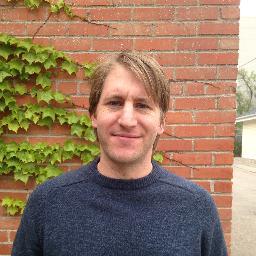
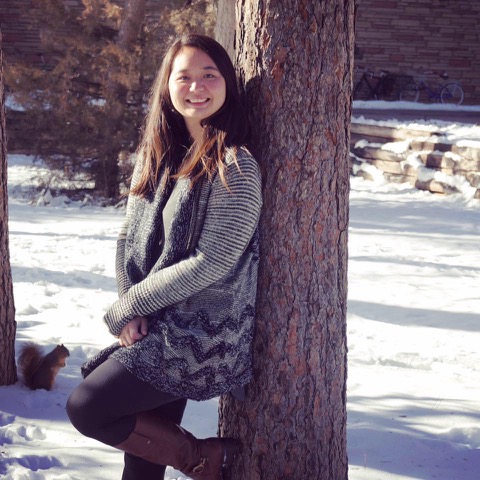
Hannah Bergemann
MS – Forest Sciences
2017
I received my MS from CSU, and I wrote my thesis on collaborative forest management. I looked at how collaborative groups participating in the Forest Service’s Collaborative Forest Landscape Restoration Program (CFLRP) influenced the implementation of fuel reduction treatments, and my work resulted in a book chapter for Dr. Schultz’s co-edited book on the CFLRP.
I am now a full-time employee with the US Forest Service. Before coming to CSU, I received a B.S. in Environmental Science, Policy and Management from the University of Minnesota – Twin Cities in 2012. After graduating with my bachelor’s degree, I spent about three years in Hawaii working as an Americorps intern for the State’s Division of Forestry and Wildlife and as a conservation planner for a small non-profit. More recently, I worked as a field research technician for the Colorado Forest Restoration Institute and conducted ecological monitoring for the Front Range’s CFLRP project.
I graduated from the University of Colorado at Boulder with a degree in environmental studies, and completed an honors thesis concerning the policies governing the fishing industries in the United States.I completed my research on learning in the context of US forest planning. While at CSU I worked with the national office on synthesizing lessons learned under the 2012 National Forest Management Act regulations and recently presented at the Washington Office on my findings. I also worked with the Grand Mesa, Uncompahgre, and Gunnison National Forests to help create a public participation strategy to help guide their efforts throughout their upcoming forest plan revision. Before coming to CSU I worked in environmental education which included a summer working on a whale watching boat in New Hampshire.
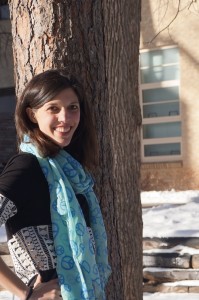
Gwen Ricco
MS – Forest Sciences
2017
Read Gwen’s research publication:
Ricco, G., Schultz, C.A. 2018. Understanding organizational learning during policy implementation: lessons from US forest planning. Journal of Environmental Policy and Planning 21: 275-287; Available at: https://doi.org/10.1080/1523908X.2019.1623659
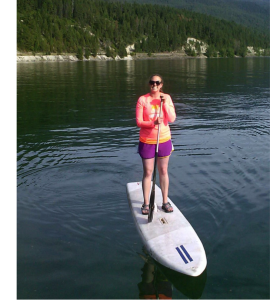
Aleksandra Pitt
MS – Forest Sciences
2016
Aleksandra Pitt researched the effects of citizen science projects that are occurring between secondary school students and the US Forest Service. Aleksandra has traveled to Alaska, Montana, and Colorado, to interview students, teachers, and USFS personnel for her research.
She has published in the Natural Inquirer, presented on agency webinars, and has two publications in preparation based on her research. She was a Pathways intern at the National Park Service’s Denver Service Center as a Visitor Use Management Specialist; she is now a full-time, permanent employee on the same staff. She works on projects for national park units all over the country.
One of Aleks’ thesis chapters is online:
Pitt, A. N., Schultz, C. A. 2018. Forest Service Youth Citizen Science Projects: Objectives, Design, and Outcomes. Journal of Forestry 116(2): 109-116.
Originally from Naples, FL, I received my undergraduate degree at Colorado State University in Conservation Biology with a minor in Political Science while working as a lab assistant in the Ghalambor Ornithology Lab. During my Masters program, I worked as a Graduate Teaching and Research Assistant, and held a full time position as Administrative Director of Saviva Capital LLC. I recently relocated to Boston, MA with Saviva, a privately owned investment management company that specializes in commodity-linked Renewables businesses and opportunities that focus on food, energy, and basic materials.

Summer Grimes
MS – Forest Sciences
2016
I completed my MS in Forest Sciences at CSU in Spring 2016 and recently submitted a paper based on my thesis to a peer-reviewed journal. The purpose of my graduate study was to understand how the USDA Forest Service is navigating the wildlife provisions of the 2012 Planning Rule – specifically with regard to the selection of, and planning for, a new category of species: Species of Conservation Concern (SCC). All 155 national forests must update their forest plans in accordance with the new regulations; therefore, I investigated how early adopter forests were implementing the new provisions during early stages of forest plan revision to provide insight into the factors that are likely to influence future wildlife planning decisions for SCCs and other at-risk species across all national forests.
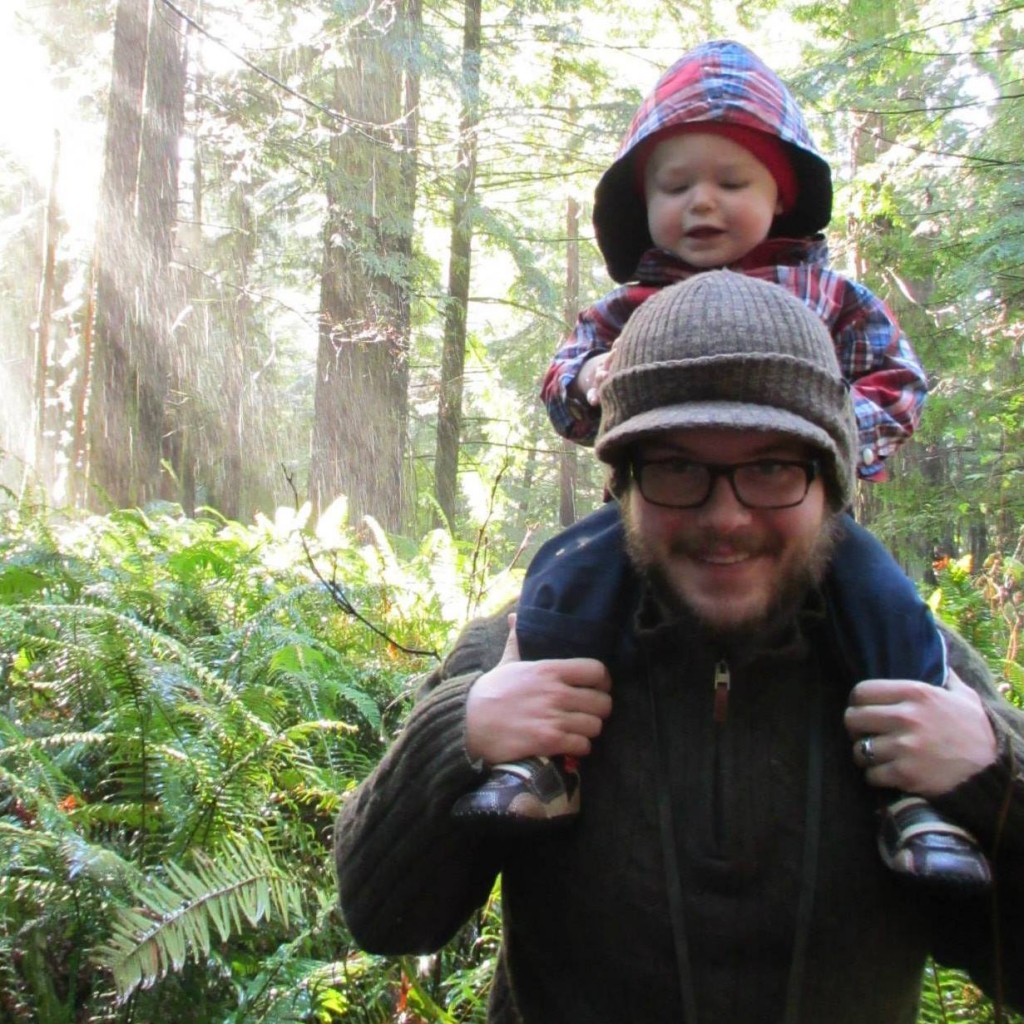
Andrew Spencer
MS – Forest Sciences
2014
I started working with the US Forest Service as an assistant Silviculturist in February of 2014 as a pathways student before graduating with an M.S. in Forest Sciences from CSU in the summer of that year. Soon after I became the Zone Silviculturist for three districts on the Fremont-Winema National Forest, Oregon. I live here happily with my wife and two sons. I was an agroforester for the Peace Corps in Benin, West Africa before becoming a teaching assistant for NR320 and a research assistant studying barriers and opportunities for prescribed fire in the West. What I really liked about the program was the opportunity to get an in depth and realistic understanding of how natural resource policy works (or doesn’t!) and how we got to where we are now. That background is useful to me everyday in my career with the Forest Service because the science of forestry is usually a lot easier than the politics.
I published my MS work in 2015:
Spencer, A.G., C.A. Schultz, and C.M. Hoffman. 2015. Enhancing adaptive capacity for restoring fire-adapted ecosystems: the Fire Learning Networks’ Prescribed Fire Training Exchanges. Ecology and Society 20(3):38. [online] URL: http://www.ecologyandsociety.org/vol20/iss3/art38/
